Is the conversion industry an overlooked casualty of the blossoming EV market? The cheapest EV in the US market today (the Nissan Leaf) is about 15% cheaper than in 2011. The Tesla Model S, which debuted at approximately $61,000 in 2012 with a 265-mile range, now exceeds 400 miles per charge.
As new EVs become more affordable, even enthusiasts question the need for gas-to-electric conversions.
Globally, EV prices are dropping even further. The Nissan Leaf's $28,000 MSRP translates to about 205,000 Chinese yuan, yet buyers in China can get a 2025 BYD Seagull for just $9,500 (69,800 yuan). The Seagull features a 10.1-inch infotainment system, NFC key access, and six airbags.
Cheap EVs like these are making their way to Europe and beyond. Despite this, the DIY EV conversion market is growing. The electric vehicle industry is expected to grow 10.54% annually from 2025-2029 in the US, while the conversion kit market, valued at $1.5 billion in 2023, could hit $4.5 billion by 2032.
To understand why people invest in conversions, how it’s done, what it takes, and if it’s worth it, I spoke with James Pauly of TractionEV, an Australian specialist who has electrified classics like the VW Kombi, Beetle, and Porsche.
The Interview
So, what inspired you to start TractionEV, and how did you get into the world of DIY EV conversions?
I was looking for a new career and I love modified cars. I like fast cars. I saw how quick EV conversions were over in the USA and I said I wanted to try that. It was pretty hard to build an EV when I first started looking into it in 2008.
But then in 2012 I saw EV West build a E36 M3 for Pikes Peak Hill Climb and decided to get in touch with them. I bought some parts from them and built my first EV conversion.
James was inspired by this E36 M3 EV West build for Pikes Peak Hill Climb.
A few years later in 2015 I went and did an internship at EV West in California. I got my first customer in 2017 who was a guy who bought parts from EV West but was stuck and not sure how to complete the build. Traction EV went full time in 2019.
That's fantastic, James. Your story drips of passion. How is the EV conversion community in Australia? How would you describe it?
I love what we do here. Australia has had a very long history of EV conversions. There are guys around who have converted vehicles over 30yrs ago. Those guys are still around too.
These days the EV conversion community is made up of people who love engineering, hobby projects and who might want to add some extra performance to their classic cars. The pandemic years were an interesting time for cars in general.
Collector car prices went up as people were looking for hobbies to do at home while everyone was in lockdown. Traction EV sold quite a few EV conversion kits in those years. So there's quite a lot of electric Beetles around Australia now with our kits in them.
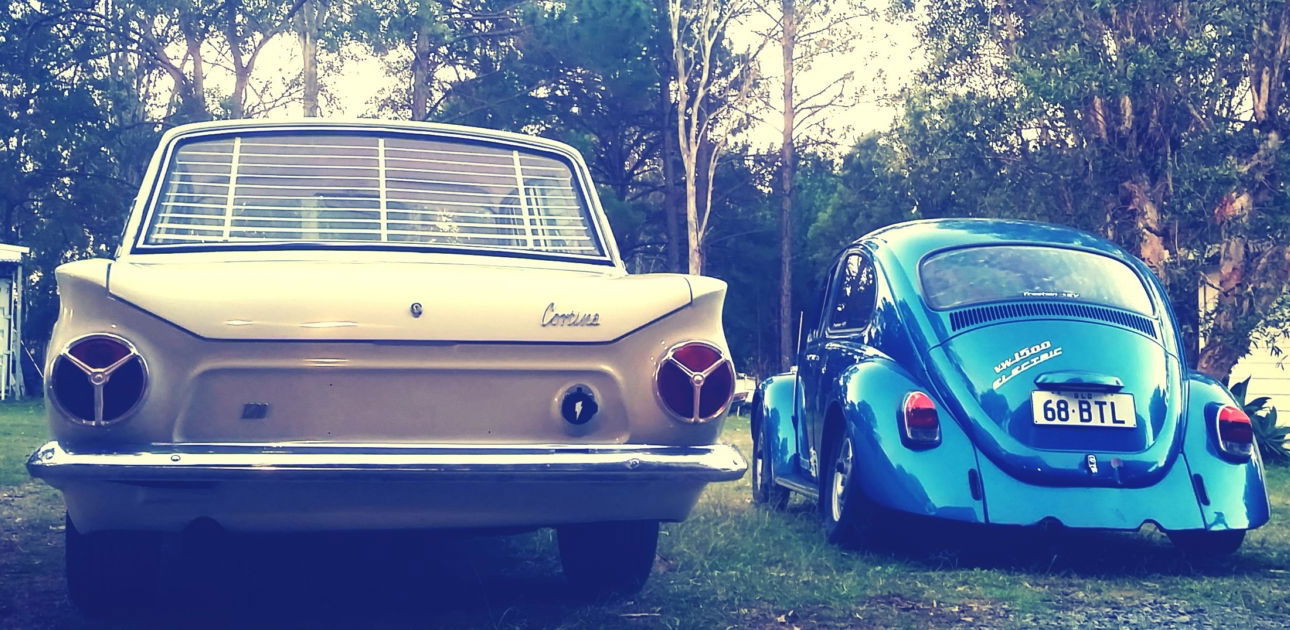
Classics Ford Cortina and VW Beetle EV conversions by TractionEV.
But it's not just Beetles that have been converted. I would say that the general DIY customer is almost gone now. People can buy a brand new EV for less than the cost of a EV conversion kit to convert a car to EV.
Now we focus on high end, high performance EV conversions. People still can and do convert their cars DIY, but usually they're looking for performance.
That's kind of sad, you know, that the DIY drive is dying. It's like people are missing the essence. It's, like you said, the love of engineering, that fuels the practice for hobbyists and gearheads. It makes sense that garage-based specialists like Traction EV now focuses on high-end models. But there are still people like your first customer who got stuck mid-DIY and need some help from an expert. Right?
There's still lots of DIY spirit. Perhaps EV conversions are a little too expensive right now when you compare them to a new EV. But if you compare an EV conversion built for performance versus a combustion build for performance then the numbers start to makes sense.
Yes we still get the occasional customer who started their DIY build who gets stuck and we finish the job. We prefer that they didn't get too far and we have to undo anything messy.
What are the biggest challenges in converting a classic car into an EV, both technically and legally?
Fitting battery boxes into a car is high on the list.
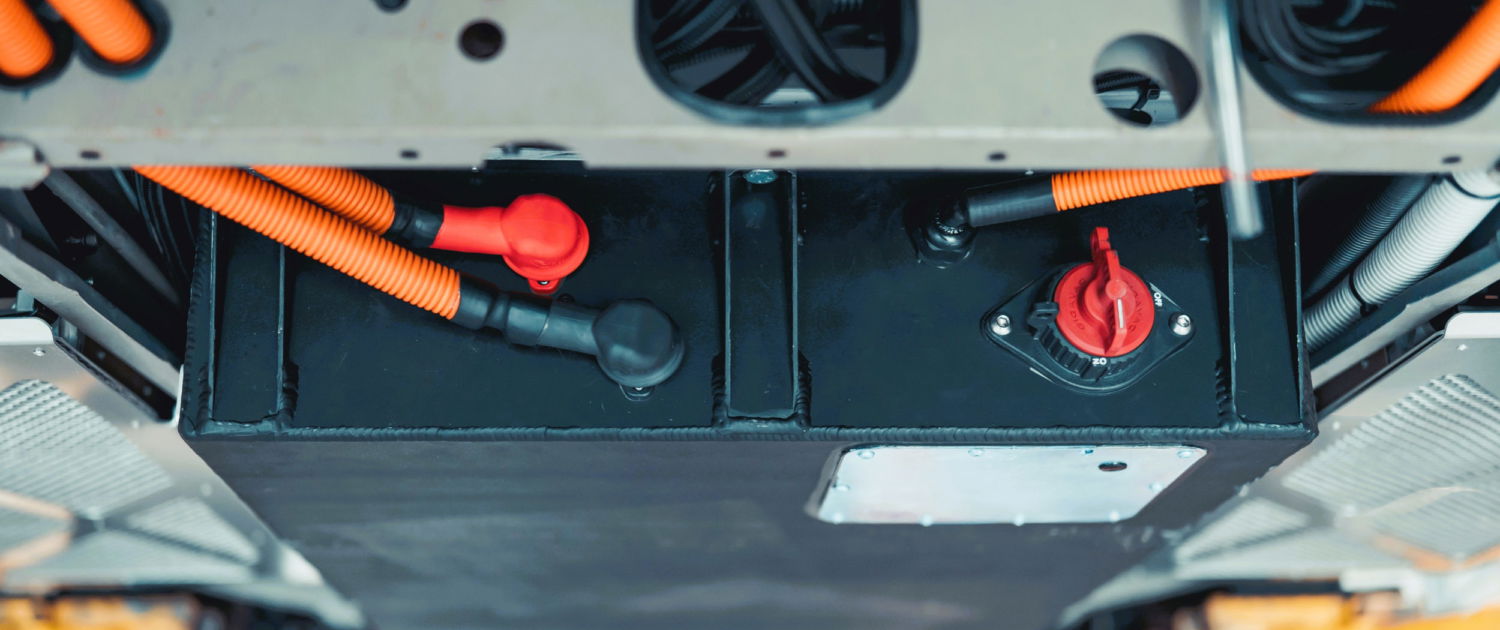
Battery box for VW Kombi van EV conversion by TractionEV.
They have to fit into places they were never designed to go into. They have to be able to be assembled, this is so easily overlooked. Everyone assumes "it's just a box".
Battery modules can be heavy and they need cell tap harnesses, thermistor harnesses, the interconnects and liquid cooling. Then all of those things need a way to enter and exit the box, all while being able to actually assemble it.
Then it must fit the vehicle and clear everything. Battery Boxes by far I would say are the trickiest thing, and everyone assumes they're the easy part.
Legally, here in Australia, we follow NCOP National Code Of Practice and ADR Australian Design Rules. There are modifications to vehicles which are allowed which don't require inspection and certification by an automotive engineer, but an EV conversion certainly does require this.
Specific things which are required for an EV conversion in Australia, the battery boxes must be restrained in the vehicle and restrain the battery to particular high G loading which is outlined in NCOP14 LV1.
There's a lot covered in that document and I highly encourage anyone in Australia to read that document carefully before undertaking an EV conversion. It's pretty common sense stuff that you definitely want your EV to comply with.
We have a customer in Mauritius who was the first to convert a vehicle to EV in Mauritius. He used the Australian NCOP14 LV1 as a guide and submitted this to the government officials there to use a basis for their guidelines.
That sounds like Mauritius didn't have a similar code of practice.
Yep. They were making it very difficult at first and didn't even want to allow our customer register his vehicle at all. So with some guidelines and structure, they could make it happen.
When was this? This was around 2022.
Can you give us a simple breakdown of how traditional cars are converted to electric?

1973 Series 3 Land Rover EV Conversion by TractionEV, powered by a 37 kWh Tesla battery pack.
In basic terms, pull the engine, measure parts of the engine and transmission to make a motor-to-transmission adaptor plate and flywheel coupler.
Make some motor mounts. Battery boxes. Then a DC-DC converter is required, this is like the original alternator. It takes the main battery pack voltage which might be 96V, 144V, 355V or higher and outputs 12V for the lights and wipers etc.
An On-Board-Charger needs to be installed. This takes mains AC power and converts it to DC for the battery pack. A BMS Battery Management System is a must. This monitors the pack and also controls the charging and discharging of the main pack to ensure the pack is safe and healthy.
Some sort of liquid cooling system will have to be installed. The battery and motor/+inverter are each on their own cooling circuits. So 2 separate cooling loops. Those are the basic parts of an EV conversion.
A BMS Battery Management System is a must to not reinforce the stereotype of EVs being a fire risk. Is that it?
A BMS will prevent a damaged battery pack in the least and fire at worst. Over discharge and charging a pack will damage a battery pack.
How hard is it to convert a car to electric, anyway? Can the average person do it, or do you need an expert?
It's not super easy. If you can read a wiring schematic and understand how a relay works you're going to have an easier time. The people that do really well have usually done a non-original engine swap before and have done some wiring modifications or something like that.
Creating a motor to transmission adaptor plate and flywheel coupler takes some skill too. Similar to fitting an engine to a transmission which isn't original.
How much does it cost to convert a car to electric? Could you break down expenses from kits to custom builds.
Someone who is on an extremely tight budget might hunt the parts down for say around $20k to $30k. Someone on a tight budget will have to build their own battery boxes etc.
Range from the pack and how powerful the motor and charge system are will dictate the final costs. We sell conversion kits for a Beetle for around $48k depending on options. A complete build by us start at around $70k.
We have some extreme builds which are hundreds of thousands of dollars. It really varies on the build, as do all custom car builds.
James was equally inspired by this Datsun.
What's the fastest Beetle you've converted - horsepower, top speed, acceleration?
Not that fast compared to other electric converted Beetles out there. 130 hp from the NetGain HyPer 9 motor and Tesla Battery. Top speed, not sure, 150 km/h in 3rd on a race track before having to slow down for the corner.
Acceleration - 0-100 km/h in around 7sec. So not the quickest or fastest EV Beetle out there, but it sure is fun. And reliable too. It's been electric for almost 6 years and over 60,000kms (approximately 37,000 miles). It gets driven hard and has only needed tires.
Besides the environmental benefits and cost-effectiveness, why would anyone convert a gas car to electric?
Energy freedom. If the car can be charged for free from solar or wind then the running costs are extremely low.
Charging from home or work while sleeping or doing other tasks can actually save you time compared to filling up fuel at a service station. Little to no maintenance, EV drivetrain systems are very simple and robust.
Is there a particular classic car you believe is perfect for an EV conversion? Why?
The EV conversion world has proven that the VW Beetle is by far the best classic car to convert to EV. They're light, they're simple, they're abundant all over the world, brand new parts are still produced for them (no use converting a car you can't buy parts for anymore.
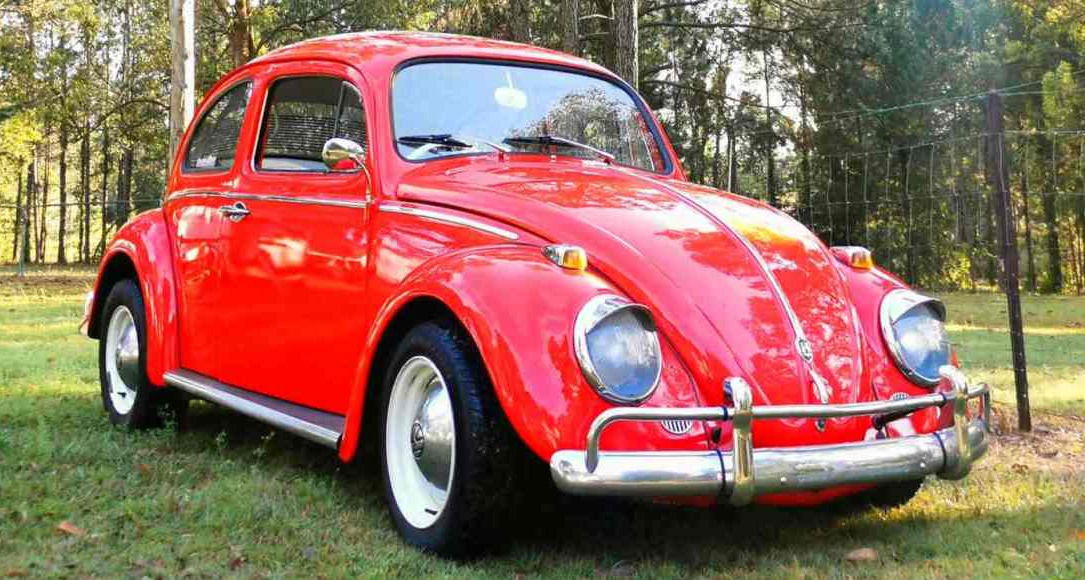
Classic VW Beetle is the perfect candidate for EV conversion - James Pauly.
What if a door handle breaks or you get into an accident for example).
The VW Bus is a very close 2nd. A little harder to convert than the Beetle but still very basic compared to other classic cars. Plus a lot of the conversion parts are already designed and available to buy off the shelf, like motor to transmission adaptor plates etc.
Battery placement is often tricky in conversions—how do you optimize weight distribution and maintain handling?
We will put a vehicle on corner scales before pulling it apart to determine where the weight sits on each wheel. We will then make sure that the weight of the battery is going to best fit this weight bias front to rear and side to side.
In the Beetle conversions we are able to match the bias almost perfectly. Getting the weight in the right place takes some planning for sure.
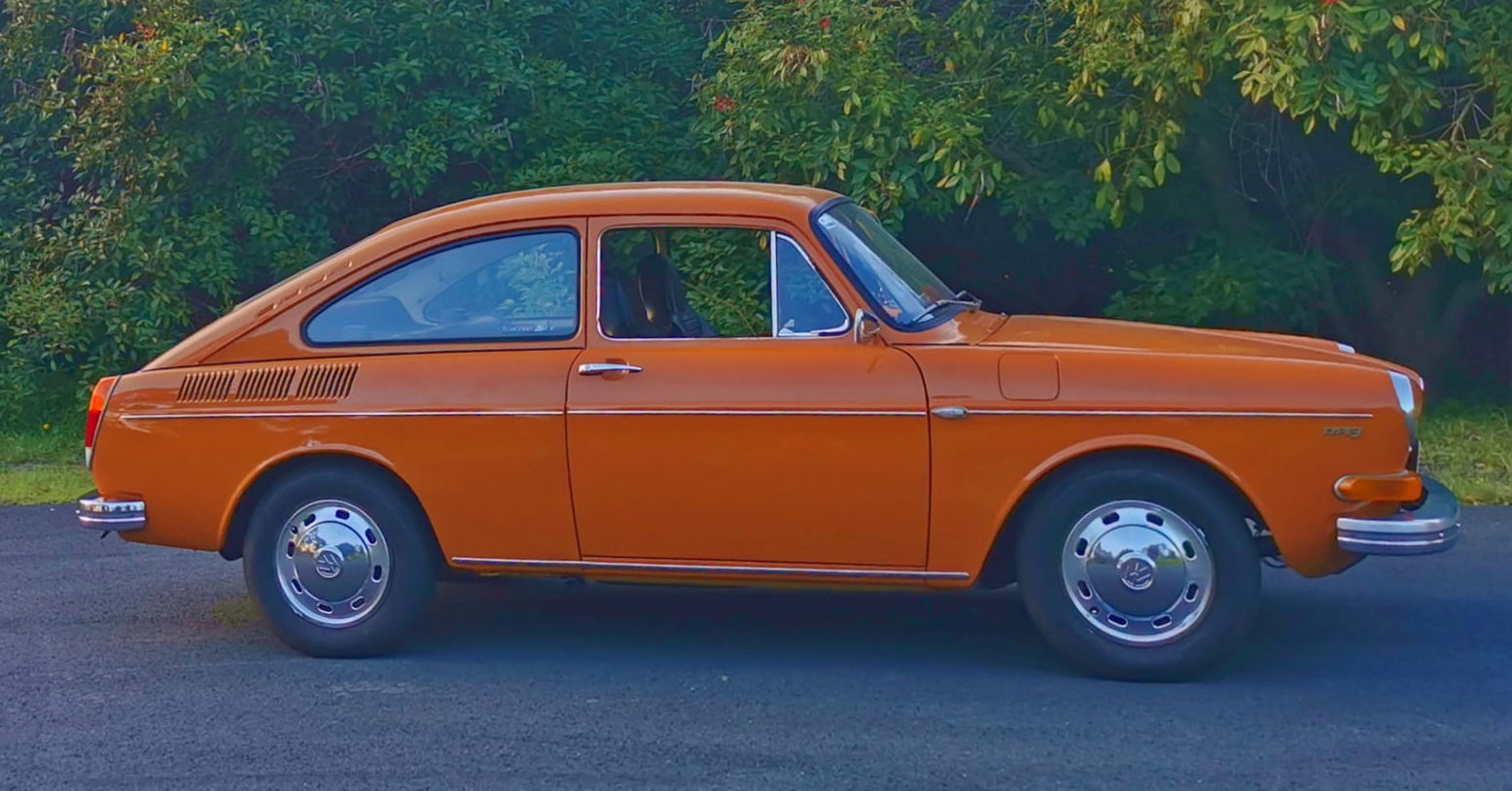
1972 VW Type3 Fastback EV conversion by TractionEV.
In your experience, what are the best (and worst) cars for EV conversions and why?
The best cars to convert are cars which have a cult following and are abundant. They'll be around for a long time and you will be able to get parts for them and chances are someone else has already converted one and you can get advice on how to convert that exact car.
The worst cars are anything new (post 2003ish) with CAN-Bus controlled components. Reverse engineering how to control anything CAN-Bus is tedious and time consuming.
Stay clear of modern cars unless you're good with CAN-Bus hacking. Also anything large and heavy is going to cost more to convert because it will require more battery and motor to go a given distance.
4WD vehicles and commercial vehicles are typically best left alone. They're heavy and will cost a lot to convert. There are electric 4WDs and vans available, best to just buy one of those if you want that style of vehicle EV.
Don't convert a vehicle to EV if you can just go out and buy a similar vehicle that's already electric for the same or less money. EV conversions typically aren't cheap.
Many enthusiasts fear losing the “soul” of a classic car when removing its combustion engine. How do you balance modern electrification with preserving the car’s character?
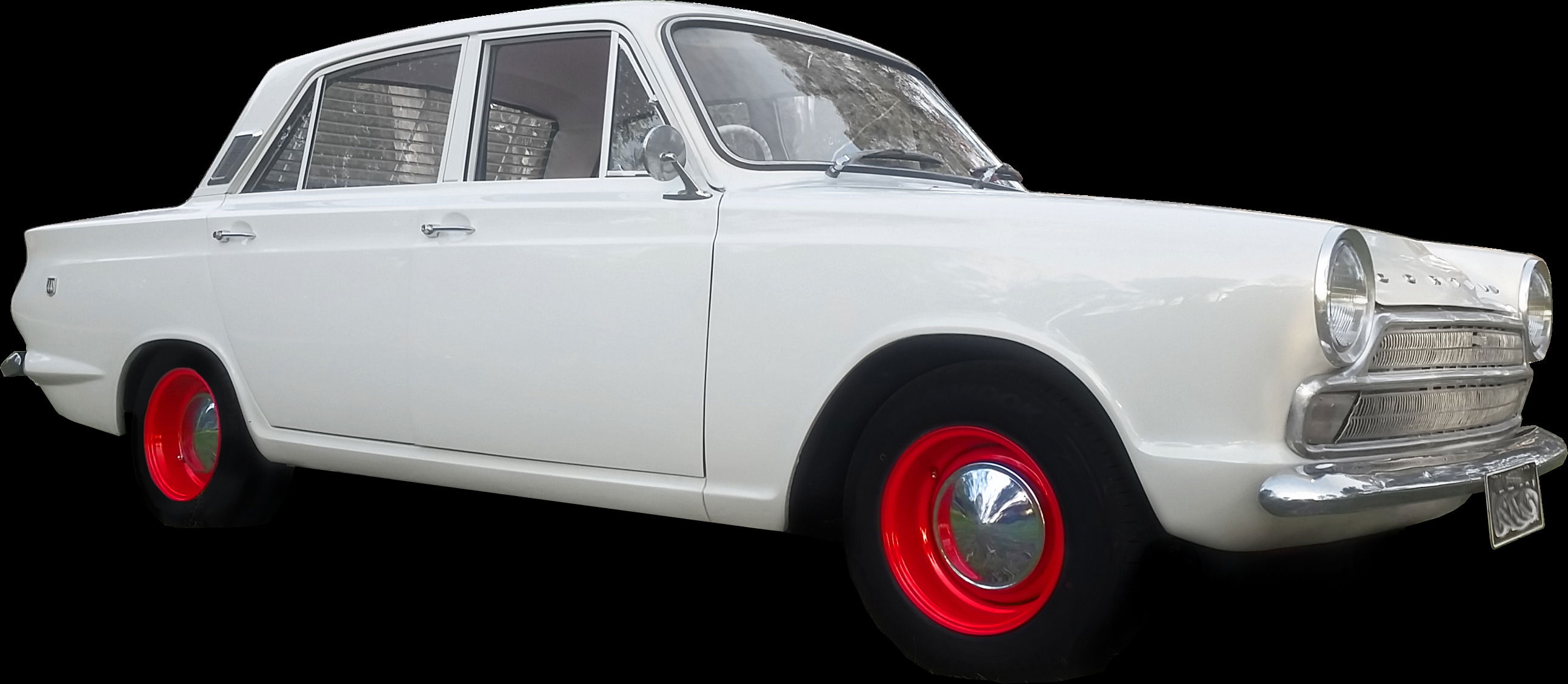
1965 Ford Mk1 Cortina EV by TractionEV.
Keeping the car as original as possible is definitely a great way to maintain the soul of the car. We have done this with many of our EV conversions.
So we will keep the interior looking as stock as possible in a lot of builds. If you looked in the window of most our conversions you wouldn't know they're EV. The one thing people always say is "EV's are boring because they don't make any noise".
No modern cars make noise. But classic cars converted to EV definitely make noise! Electric motors make amazing sounds which transfer into the cabin of the car.
Electric car noises are awesome. Driving a classic around always grabs people attention and you're still inside an old car so the feel of stepping back in time is definitely still there.
The reliability of an EV conversion means that you can enjoy your classic car everyday knowing that it's not going to break down. Most classic cars only get driven on weekends, not an EV converted one.
This has to be the strongest argument for EVs I've ever heard. What’s the most ambitious or technically complex EV conversion you’ve ever done? What made it so challenging?
Probably the latest two conversions we're working on. A 1965 Dodge D100 Pick-Up truck and a 1972 BMW 2002. They're both Tesla motor swapped so require extensive chassis work to mount these motors.
We have partnered with professional chassis builder shops to help us create the mechanical platform to mount these motors and battery packs and then we build the battery packs and wire everything together. The mechanical engineering of these builds is what makes them so complex.
Is it worth it, though? Do converted EVs drive like factory-built ones? Are they as safe, including legal roadworthiness? What do you see as the pros and cons of converting to electric?
Is it worth it? Compared to what? It's definitely worth it when compared to modifying an ICE for more power. Converting a car to EV purely just to save money on fuel costs probably isn't worth it. If saving money is the main goal, then we suggest people just go and buy a new BYD or Kona EV etc.
We will get customer inquiries asking about converting their generic A-to-B car to EV and we tell them it's not worth it.
Safety - We use the same methods of battery protection and controls as the major manufacturers so yes the battery is as safe. Will a converted EV be as safe as an OEM EV in general? No way.
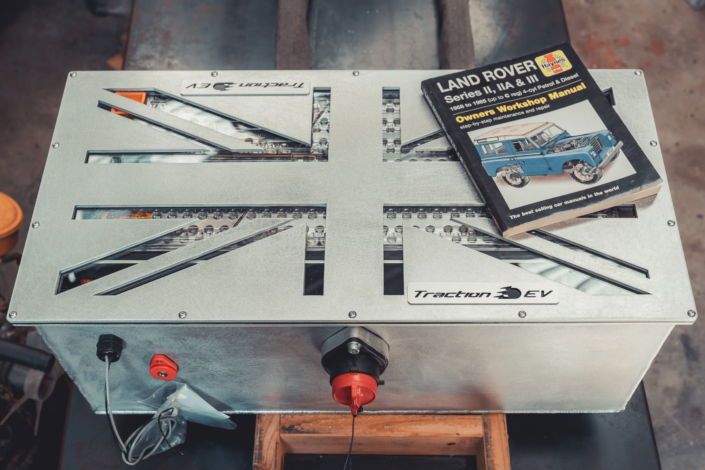
Custom-built battery box by TractionEV.
We're converting 30, 40, 50, 60-year-old cars to electric. The crash safety definitely isn't at modern standards. Even 10-15 year old cars aren't equal to brand new car safety standards.
Legal road-worthiness; all of our EV's are built to Australian Standards for modified vehicles. When modifying a car in Australia any safety features that were in the car before modification, must remain in the car after modification…
Pros - Cheaper to run once it's built, especially if charging from solar at home or work. More reliable than ICE. Especially if you like to race or drive hard, EV drive trains can take a lot of abuse.
Building an EV means you know what's gone into the vehicle and all of the components are swappable and upgradeable into the future.
Cons: More expensive to build upfront than just buying an OEM EV. Depending on the battery you build into your conversion and depending on your daily requirements maybe the battery range won't suit you.
Building an EV conversion takes some mechanical, electrical, fabrication and design skills.
How do you see DIY EV conversions evolving in the next 5–10 years? Will technology make it more accessible to the average enthusiast?
This is hard to say.
In the next 5 years we'll see battery energy density increase for sure. I think tech will make EV conversions more accessible to the average enthusiast, yes. I get the feeling that at least here in Australia regulations will push the average home builder to get at least some basic certifications to work on converted EVs.
Most of the first time builders will use a motor and battery system of a relatively safe voltage of around 96V or 144V, which is good place to start.
The workshops and retailers of EV parts in Australia have all agreed not to sell any 400V-based systems to people who aren't qualified in an electrical trade of some description and who understand the dangers of such voltages.
But perhaps more and more companies will produce kits for particular vehicles that will make EV conversions easy for those specific vehicles.
You've mentioned that fitting battery boxes are so easily overlooked. Are there common mistakes or misconceptions you see among DIYers attempting their first EV conversion?
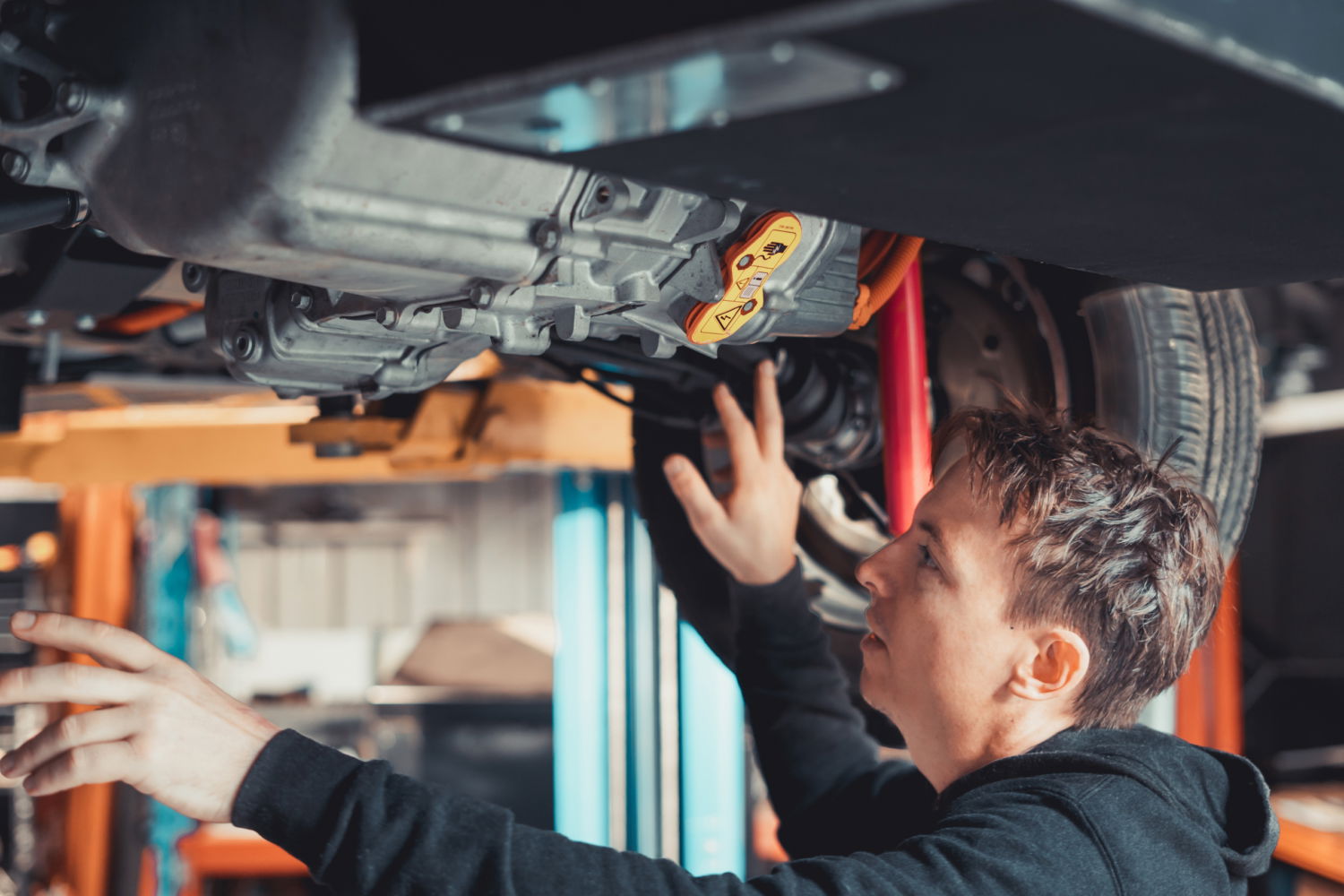
Battery boxes are by far the most overlooked. Then just time to complete the build. If you've ever tried to fit an engine into a car for which it was never intended, then you'll understand the complexities.
People doing an EV conversion should have good wiring skills. Knowing how to crimp terminals the right way is a MUST. Ask an electrician to show you how and make sure you're making good connections before diving into an EV swap.
Cost of the build. Always factor in more time and more cost to the build. Time and budgets inevitably blow out. Check that all of your components chosen for the build are compatible with each other. Make sure they're all for the right system voltage. If they need to communicate with each other, make sure that they're able to.
With stricter emissions laws and growing EV adoption, do you think governments will make classic car conversions easier or harder in the future?
From what I've seen here in Australia at least, there is a push to move to more modern safer vehicles, so I don't think the Australian government will incentivize EV conversions of classic cars directly. But indirectly perhaps by lowering the registration costs of EVs.
If you had an unlimited budget and no regulatory restrictions, what dream car would you convert into an EV, and how would you spec it?
Unlimited budget certainly opens up a lot options! Probably something AWD and silly amounts of power. Maybe an Audi R8, Aventador, Carrera 4 or an R34 GTR just to annoy the purists.